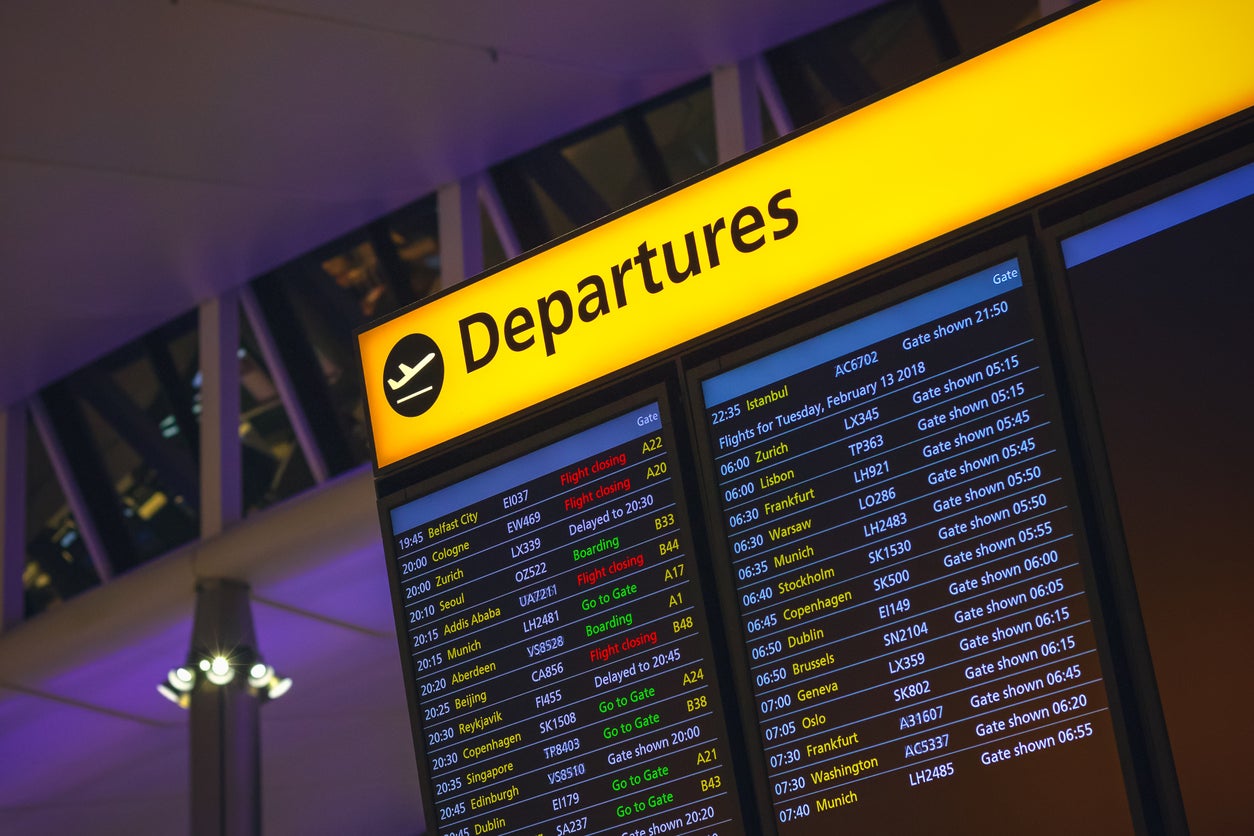Are the days of short-haul flights in Europe numbered?
Plane Talk: After France made aid to the national airline contingent on cutting some domestic links, could trains replace planes elsewhere?

Your support helps us to tell the story
From reproductive rights to climate change to Big Tech, The Independent is on the ground when the story is developing. Whether it's investigating the financials of Elon Musk's pro-Trump PAC or producing our latest documentary, 'The A Word', which shines a light on the American women fighting for reproductive rights, we know how important it is to parse out the facts from the messaging.
At such a critical moment in US history, we need reporters on the ground. Your donation allows us to keep sending journalists to speak to both sides of the story.
The Independent is trusted by Americans across the entire political spectrum. And unlike many other quality news outlets, we choose not to lock Americans out of our reporting and analysis with paywalls. We believe quality journalism should be available to everyone, paid for by those who can afford it.
Your support makes all the difference.You may have read the story: “France bans short domestic flights where passengers can take the train.”
The article by my colleague Helen Coffey describes how the French government made a €4bn (£3.5bn) recapitalisation of Air France contingent on cutting flights on routes where a rail journey taking less than two-and-a-half hours was feasible.
Now a group that promotes rail travel, and in particular “open access” train operators, is calling for the concept to be extended.
Allrail, the Alliance of Rail New Entrants, says flights on European routes where trains can cover the same ground in four hours or less should be grounded.
Anything that broadens the climate debate is to be welcomed, and this is certainly a radical policy which will find some favour with environmentalists – as well as people who live near busy airports and see dozens of very short-haul flights arriving and departing daily.
But I cannot see any prospect of lawmakers adopting such a policy – because of its unintended consequences.
Take a couple of rail journeys where at least one trip a day is at or below the four-hour threshold: Frankfurt to Berlin and Edinburgh to London.
Mandating the cancellation of these links would be irksome for the traveller – and ultimately counter-productive. Suppose you plan to travel from Edinburgh via Heathrow to Johannesburg, or from Miami via Frankfurt to Berlin. You want to avail of the hub-and-spoke possibilities that network carriers such as British Airways and Lufthansa offer.
As you may have spotted, LNER offers a superb, fast and frequent link between the centre of Edinburgh and King’s Cross on the edge of central London. At this point the South Africa-bound traveller must, according to Allrail, lug cases down to the Piccadilly Line and sit on a Tube train for an hour to reach Heathrow.
Conversely, the Berliner heading home from Florida touches down at Frankfurt at 8am aboard flight LH463 is feeling, frankly, rubbish. They simply want to go through passport control and head for the gate to grab a coffee before their onward hop at 9.45am, arriving shortly before 11am at the German capital’s shiny new airport.
In both cases, if the passenger can’t make a domestic connection via their nation’s hub, the likelihood is that they will choose sub-optimal air routing.
Edinburgh-Johannesburg via Doha adds 1,400 miles to the overall journey, while Miami-Berlin via Istanbul (the first option offered by Skyscanner) increases the distance flown by nearly 2,000 miles.
But there is scope to reduce the amount of short hops. On both domestic trips described here, there will be a mix of connecting and point-to-point passengers. A good way to move some the latter group from air to rail is to cut the train fare and tax the plane ticket.
Mark Smith, the international rail guru who created the Seat61.com website, agrees: “Personally I’d never take a flight for a journey I could do in four hours centre to centre by train, and an increasing number of people feel the same, both for reasons related to climate change and because it’s a nicer experience and frankly just as quick as a trek to the airport, lengthy check-in, flight, and trek into the city.”
His prescription: make airlines pay tax on their fuel and remove VAT on train tickets where it’s charged.
But Mr Smith also borrows from the great development in aviation: lowering the barriers to entry to encourage competition, leading to cheaper tickets and better services.
Ironically, French Railways – which stands to be the main beneficiary of the Air France ruling – is doing all it can to discourage competition.
Sometimes aviation gets it right.
Join our commenting forum
Join thought-provoking conversations, follow other Independent readers and see their replies
Comments